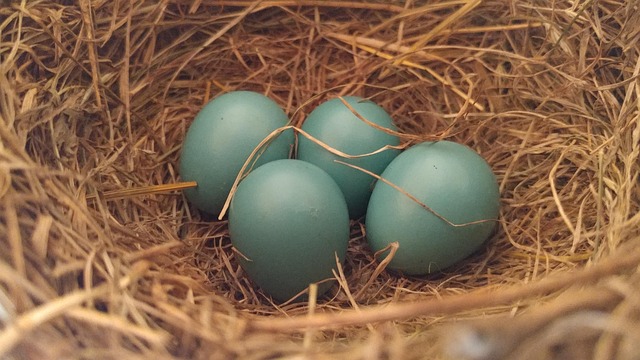Navigating societal perceptions of egg donation is crucial for fostering acceptance among individuals considering fertility treatments post-ovarian surgery. Cultural discussions around non-traditional reproductive choices often stem from misconceptions and biases, so educating oneself and engaging in open dialogues are key steps. By sharing personal stories, raising awareness about the benefits, and addressing ethical complexities, society can create a supportive environment that encourages exploration without stigma. Open communication within relationships is also vital for mitigating emotional challenges and strengthening bonds during fertility treatments like egg donation, ultimately enhancing emotional well-being.
In today’s world, exploring family building options is becoming increasingly common. One such path, egg donation, invites a complex emotional landscape, both personally and societally. This article delves into the nuanced emotions surrounding this topic, offering insights on navigating societal perceptions of egg donation while highlighting personal growth and acceptance after ovarian surgery. We explore the impact on relationships and present success stories, considering future family-building considerations for those embarking on this journey. Key focus: fertility treatment after ovarian surgery.
Understanding the Emotional Landscape: Navigating Societal Perceptions of Egg Donation
Navigating societal perceptions of egg donation is a crucial aspect of understanding the emotional landscape for individuals considering this fertility treatment after ovarian surgery. In many cultures, discussions around reproductive choices, especially non-traditional ones like egg donation, can evoke a range of emotions and judgments. Some may view it as a brave and selfless act, while others might attach societal stigmas or personal biases. This varied response often stems from misconceptions and a lack of awareness about the motivations and experiences of both donors and recipients.
Educating oneself and fostering open dialogues are essential steps in addressing these perceptions. By sharing personal stories and raising awareness about the benefits of egg donation, including its role in helping couples achieve their desire to start families, society can move towards a more accepting and supportive environment. This shift in perception is vital for individuals who have undergone ovarian surgery, as it encourages them to explore all reproductive options without fear of judgment or stigma.
Personal Growth and Self-Acceptance: Embracing Fertility Treatment After Ovarian Surgery
After ovarian surgery, many women navigate a new chapter in their lives, marked by uncertainty and a re-evaluation of personal boundaries and desires. This period can be transformative, fostering personal growth and self-acceptance as individuals confront and overcome challenges related to fertility. Embracing fertility treatment during this time is a powerful act of self-care, allowing women to reclaim their agency and explore options tailored to their unique circumstances. It’s a journey that encourages introspection, empowering individuals to cultivate resilience and a profound sense of self worth.
The decision to pursue fertility treatments after ovarian surgery can be liberating, marking a step towards embracing one’s identity and fulfilling aspirations for parenthood. It requires courage and openness to explore medical advancements while cultivating emotional resilience in the face of potential challenges. This process fosters a deeper understanding of personal limits and capabilities, ultimately leading to a profound sense of accomplishment and self-discovery.
The Impact on Relationships: Open Communication and Support Networks
When exploring fertility treatments, such as using an egg donor after ovarian surgery, relationships can undergo significant shifts. Open communication is vital to navigate this complex journey, fostering understanding and support among partners, family, and friends. Discussing the decision openly allows for emotional preparation, addressing any fears or concerns from all involved parties. This transparency creates a supportive network that can mitigate potential strain on relationships caused by the unique circumstances of egg donation.
The support networks that form during this process are invaluable. Friends and family can offer practical assistance, emotional comfort, and a listening ear. Support groups for both donors and recipients provide additional resources, enabling individuals to share experiences, gain insights, and find validation. This collective understanding strengthens bonds and paves the way for a healthier emotional landscape as couples navigate fertility treatment and its aftermath.
Building a Family: Success Stories and Future Considerations
Building a family is often considered one of life’s greatest joys, and for many individuals and couples facing fertility challenges, utilizing an egg donor can be a successful path to parenthood. Success stories abound, showcasing happy families created through egg donation, dispelling myths, and providing hope for those navigating fertility treatment after ovarian surgery or other medical interventions. These narratives highlight the emotional journey of adoptive parents, who often describe the experience as deeply personal and rewarding, fostering a sense of fulfillment and love despite not sharing biological ties with their children.
Looking towards the future, considering the ethical implications and emotional aspects of egg donation is essential. As society continues to evolve in its understanding of family structures, the acceptance and support for diverse family formations are growing. Future considerations might include addressing potential psychological impacts on both donors and recipients, ensuring transparency and informed consent, and fostering an environment that encourages open conversations about fertility choices, including the role of egg donation.
In conclusion, navigating the emotional aspects of egg donation is a complex yet rewarding journey. By understanding societal perceptions, fostering self-acceptance post-ovarian surgery, maintaining open communication in relationships, and celebrating success stories, individuals can build families with love and support. Embracing fertility treatment after ovarian surgery is not just about biological possibilities but also personal growth and the creation of vibrant family tapestries.
